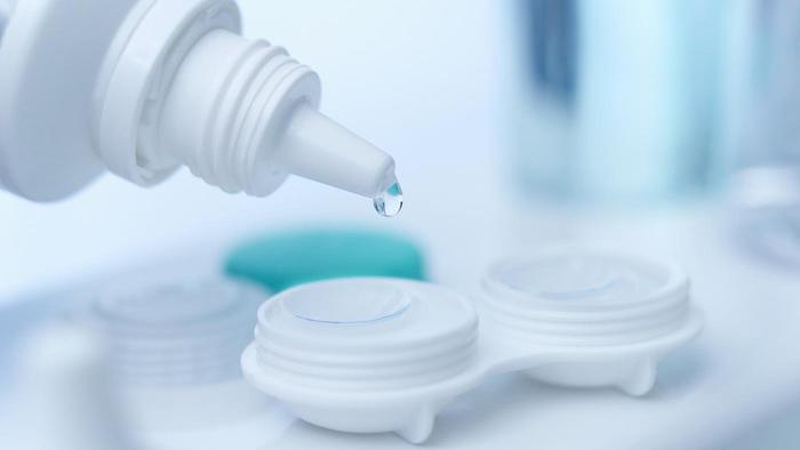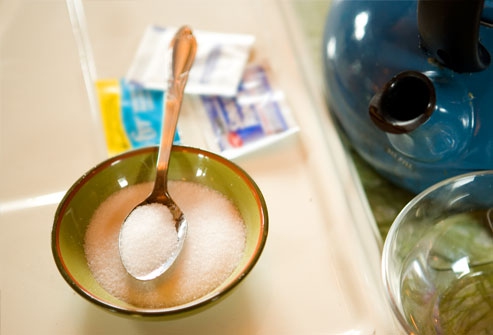Millions of people use contact lenses every day and most of them do not experience any problems whatsoever. However, you need to ensure that you take some care when wearing and storing your contact lenses to avoid dealing with any problem. Debris, makeup, oil, and microorganisms can accumulate on your lenses and increase your risk of infections. Without following a good cleansing regimen, your lenses would not last long. And to keep your lenses clean, you need to ensure that contact solution is of high quality. However, there’re cases when contact solution is not available, what to do then?
Can You Use Contact Solution Substitute?
Yes, you can use a substitute when you do not have your contact solution available. You just need to ensure that you do not use the substitute for extended time or else it may lead to infections and other eye disorders.
You need to understand that your contact solution is no ordinary solution – they prepare it using special chemicals that help clean and disinfect your lenses. You can find a number of brands these days, but most of them have a buffer, a binding agent, a surfactant, and some kind of preservative. The combination of these elements help get rid of any buildup on your lenses without causing any damage. The wetting agent found in these solutions help keep your lenses moist.
Some Substitutes to Use in Emergency Only
Try Hydrogen Peroxide
You can use hydrogen peroxide to clean and store your lenses for a short time. However, you should be using this option only when your cleaning case has a platinum catalyst. That is mainly because the catalyst works to turn the hydrogen peroxide to water. If the catalyst does not neutralize hydrogen peroxide, it will cause severe burns to your eyes. So, be careful when using this substitute, and go for a 3% solution and use it without diluting.
Use Saline Solution
You can use saline solution, which is a pH-balanced saltwater solution, to rinse off your contacts. Just keep in mind that it should be used in emergency only because the solution does not have any cleansing agent. You should not rely on a saline solution to disinfect, clean, or store your contacts. If you really want to use some saline solution, it is better to opt for a commercial preparation. Stay away from making your own mixture at home.
Use Distilled Water
It is never a good idea to clean or store your lenses in tap water. Many bacteria and minerals are present in tap water, and while they may be harmless to drink, they can damage your contact lenses. You will be better off using distilled water because it does not contain microorganisms and minerals. You can use it to get rid of any smudges that may be there on your lenses. Keep in mind that distilled water can help clean smudges but it is not going clean your contacts properly.
Proper Care of Your Contact Lens
While contact lenses are generally safe, they demand some care. Not cleaning them properly would increase risk of eye infection. Your lenses may become infected if you use extended-wear lenses, not pay attention to proper hygiene, or do nothing to protect your lenses from environmental factors. In addition to using contact solution substitute in emergency, there are a few more tips to help lower risk of eye infections:
Use soap and water to wash your hands and then handle your contact lenses.
Limit contact with water – it is better to remove your lenses before you go swimming.
Do not use tap water to rinse or store your contact lenses.
Never put your lenses in your mouth in order to moist them. Your saliva is never a sterile solution.
Never use rewetting drops or saline solution to disinfect your contacts.
Talk to your eye care professional and learn about the schedule to replace your contact lenses.
Educate yourself about contact lens cleaning and storage guidelines and follow them thoroughly.
Use your fingers to clean your lenses. Rub your contacts gently and then rinse them with some contact solution. Then, soak them into to the solution.
Use fresh solution to rinse the contact lens case. Never use water.
Be sure to replace your lenses in a timely manner – you should be changing your lenses every three months. Check your lens case as well and do not use it if you notice any cracks.
Along with taking care of your contact lenses and contact lens case, you should also handle your lens solution with special care. Instead of using contact solution substitute, it is always better to stick with the original lens solution.
Here is what to keep in mind:
Never use old solution because it can cause infections.
Avoid transferring lens solution into small containers because this can change the sterility of the solution, increasing your risk of infections.
Ensure that you do not let the tip of the bottle touch the surface of your lenses. Close the bottle tightly when it is not in use.
Know the instructions about how long you can store your contact lens solution. Be sure to re-disinfect you lenses if you store them for 30 days or more.





View All Comments /Add Comment